A talk by @JonTheNiceGuy (Jon Spriggs)
Here’s how you win:
Secure Scuttlebutt
An offline first, peer to peer social network
Psst… Looking for the speaker notes? Press S. Move through the talk by pressing the “right” arrow.
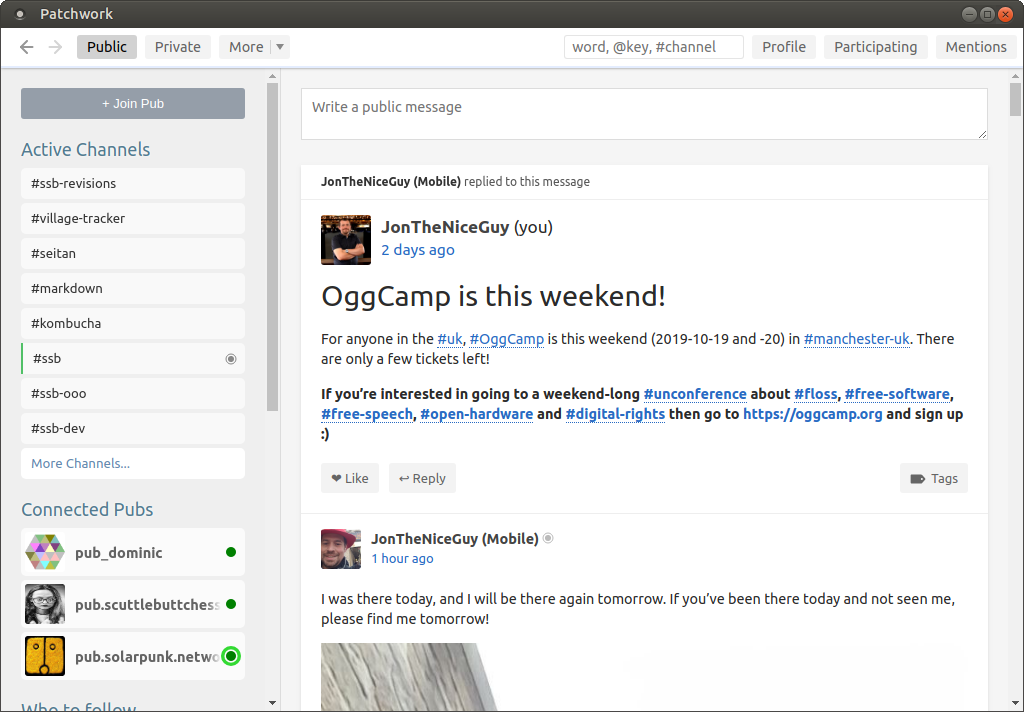
|
Here’s How You Win Share your life |
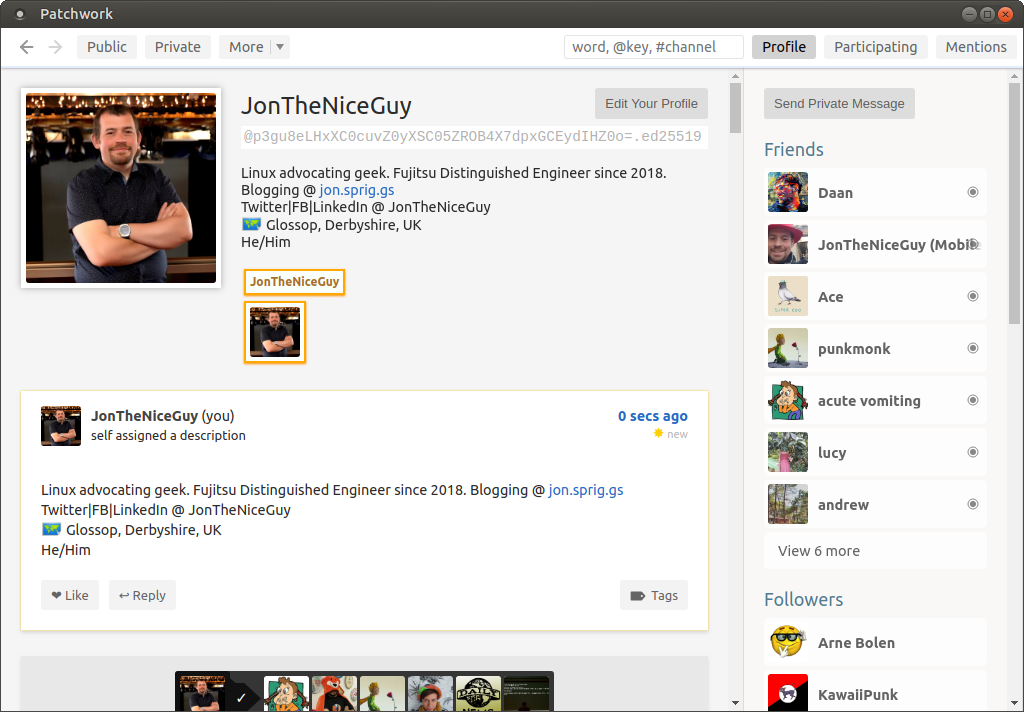
|
Here’s How You Win Be yourself |
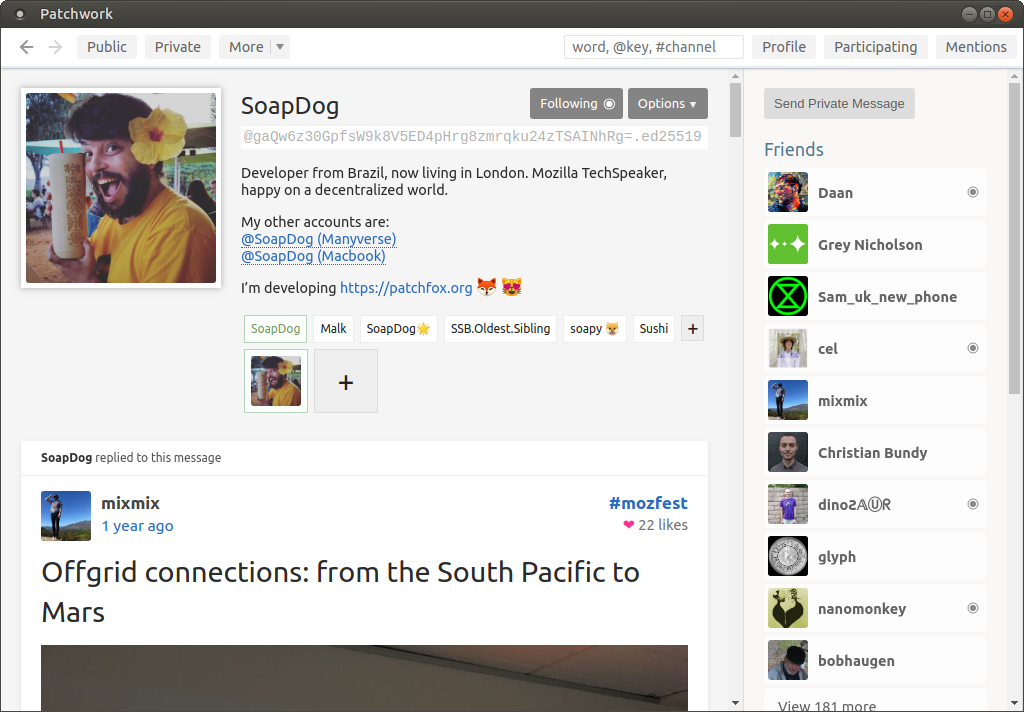
|
Here’s How You Win Make friends |
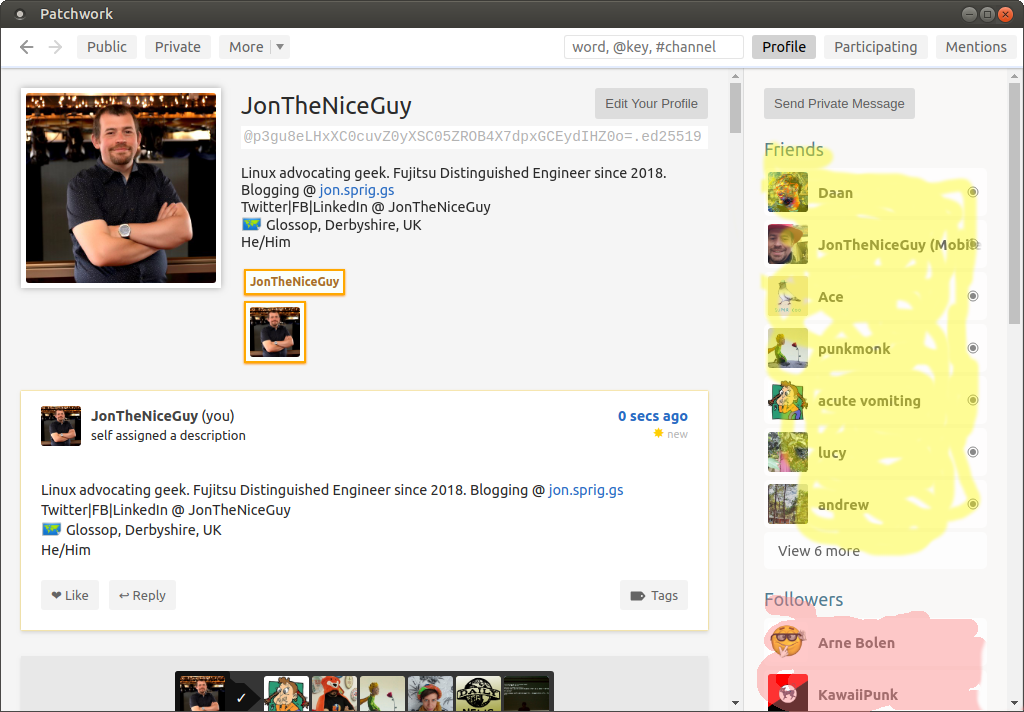
|
Here’s How You Win Gossip with your friendsAnd friends of friends |
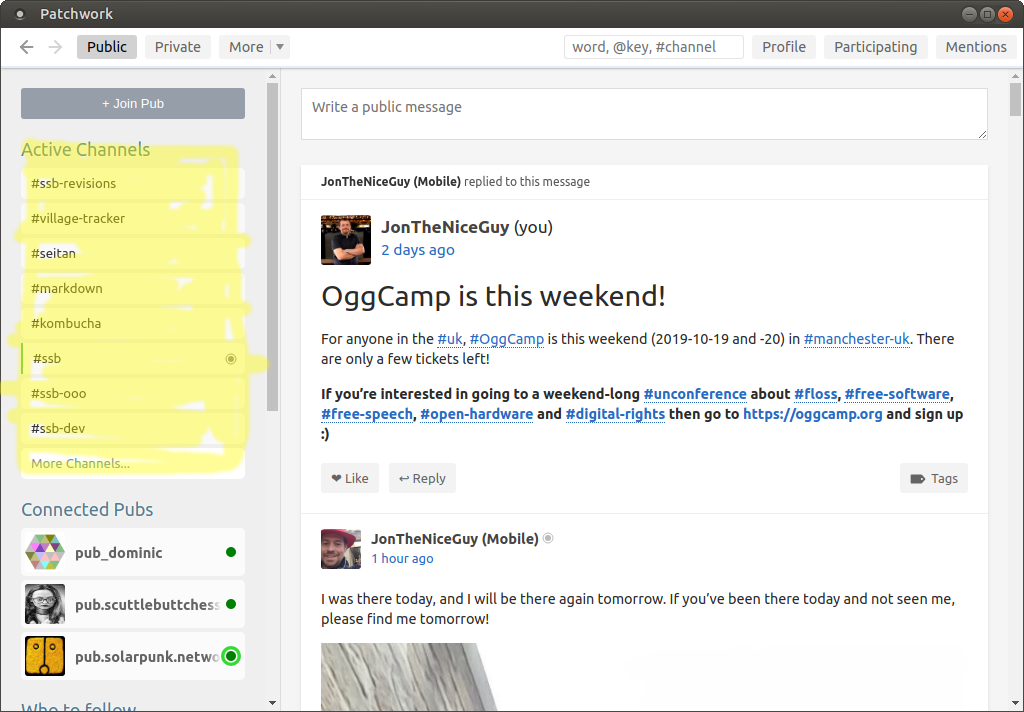
|
Here’s How You Win Post about things that interest you |
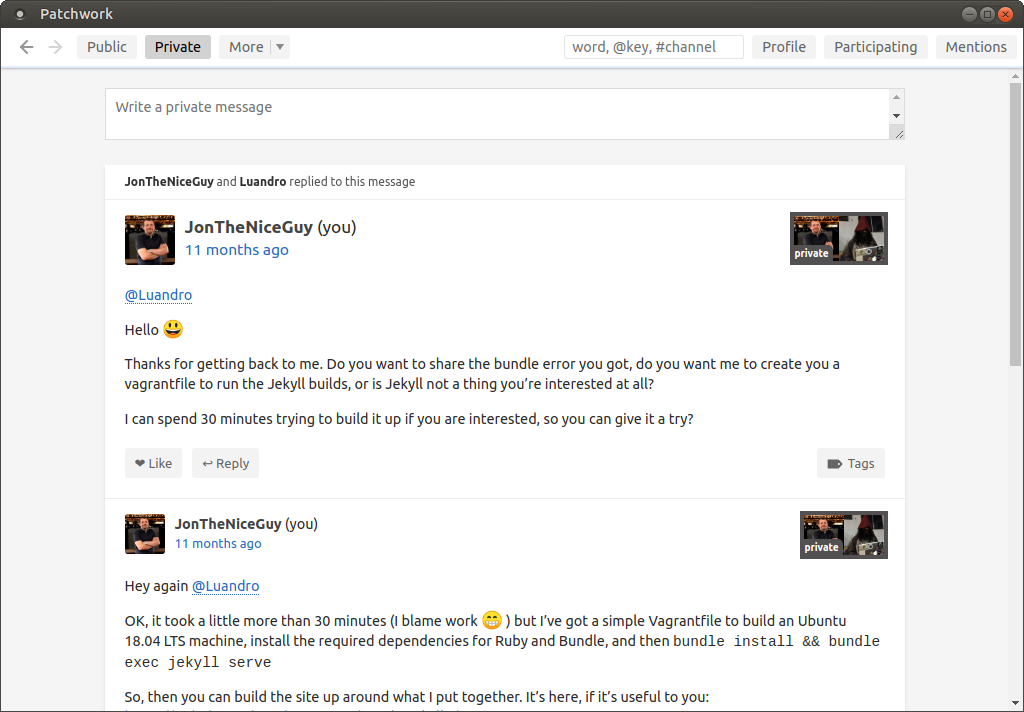
|
Here’s How You Win Talk in private |
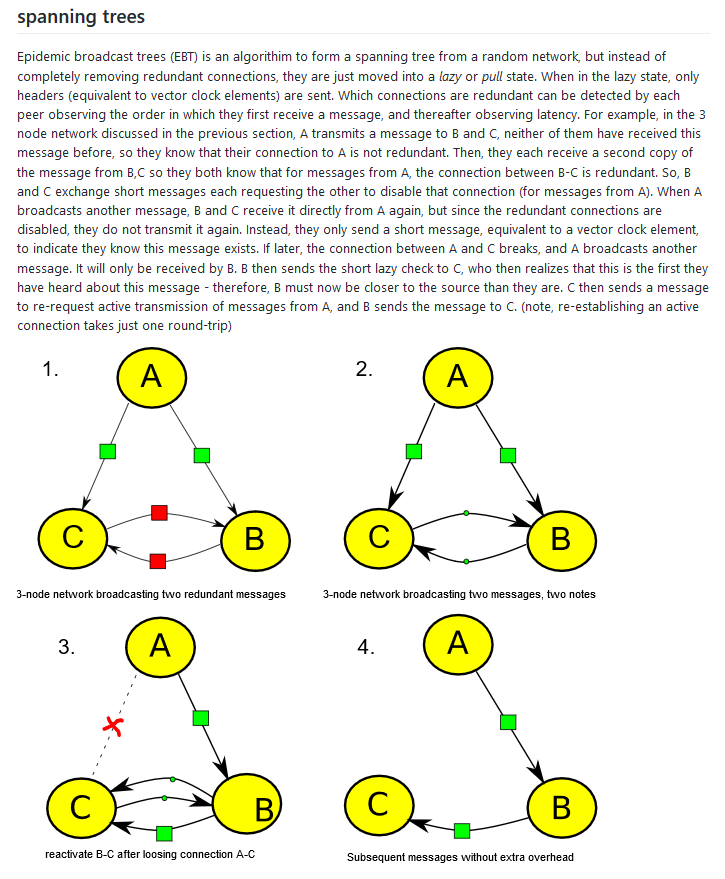 An extract of the "Scalable Secure Scuttlebutt" paper, retrieved from Github on 2019-10-19 |
Here’s How You Win Be online by exception |
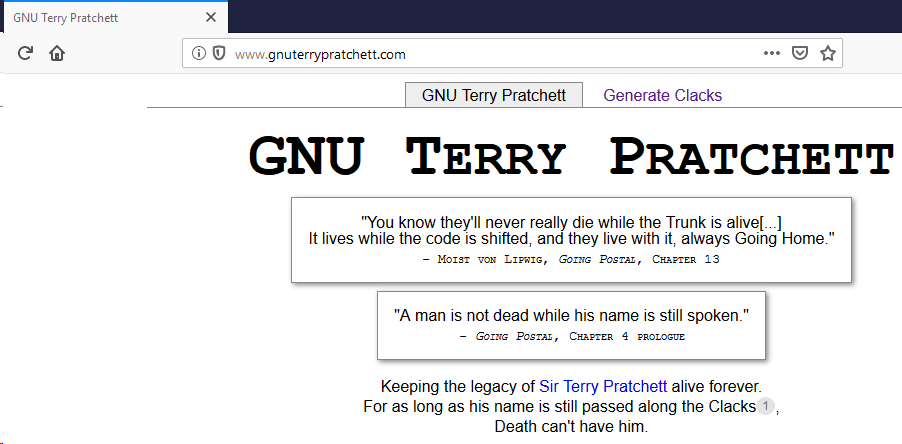
|
Here’s How You Win GNU Terry PratchettWait… What? Don’t let your messages die |
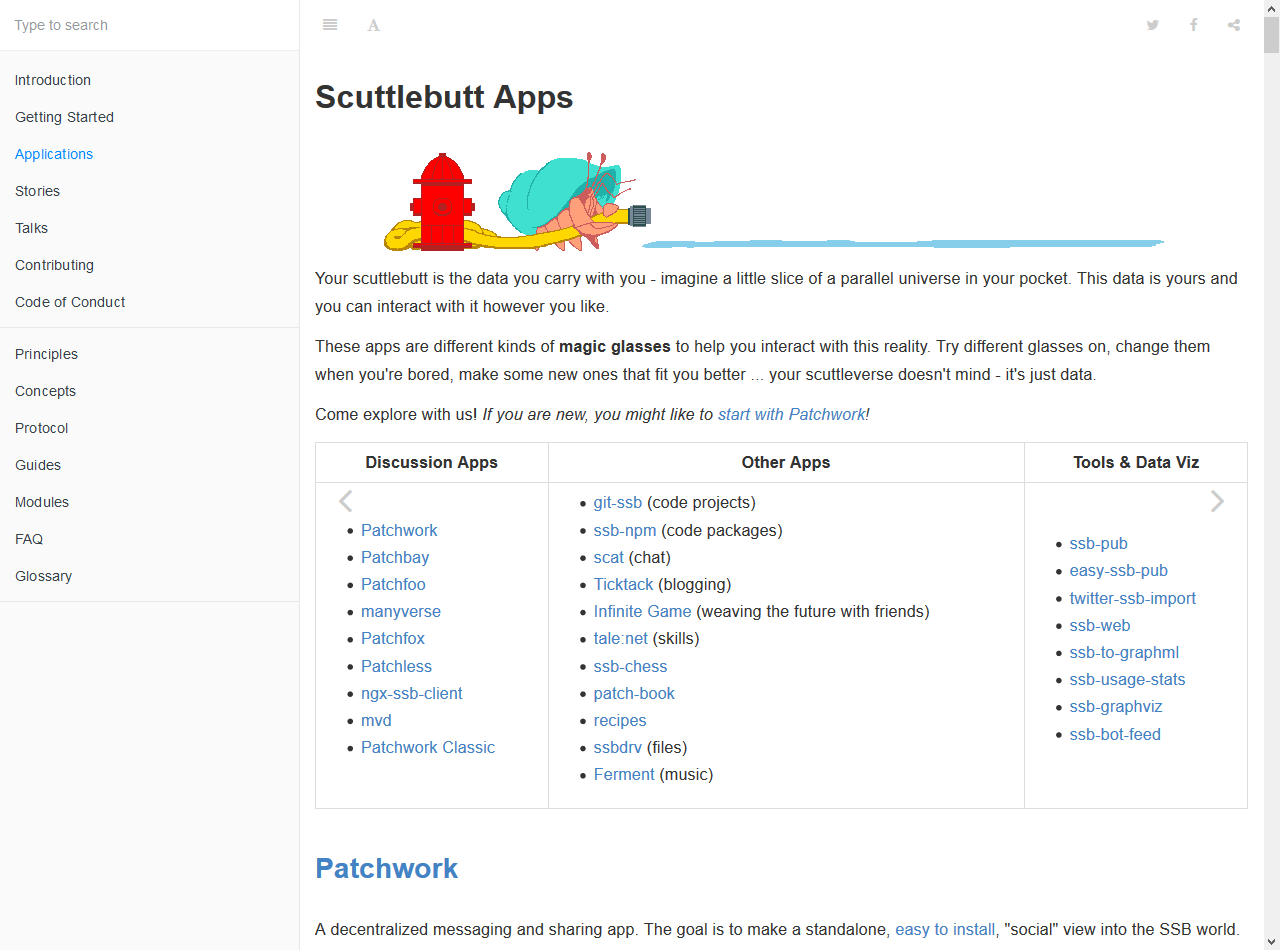
|
Here’s How You Win Don’t limit yourself to one application |
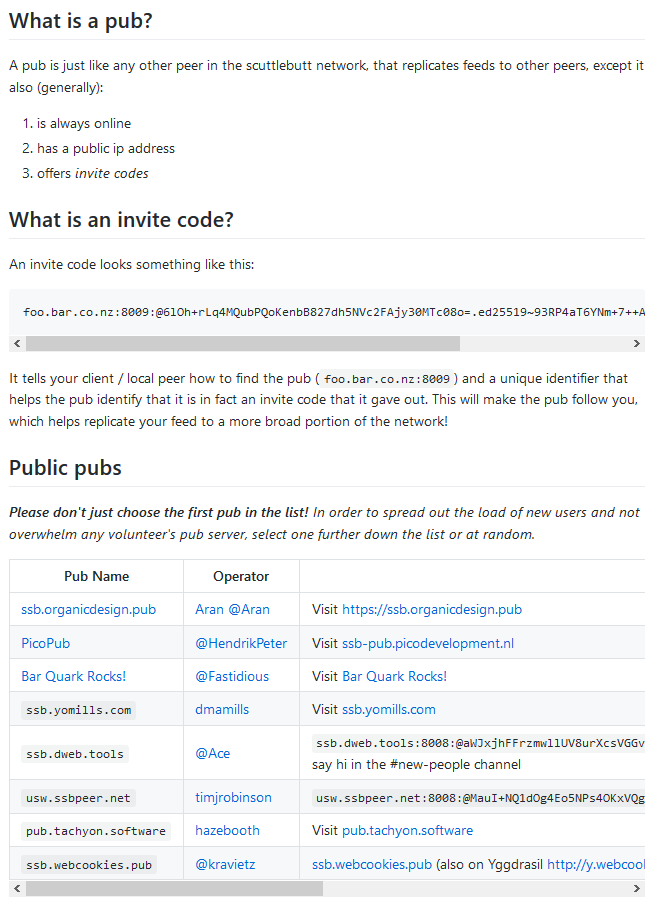 Extracted from the “Pub Servers” wiki page |
Here’s How You Win Find new friendsAt a pub(?) |

|
Here’s How You Win Be Decentralised |
|
Here’s How You Lose…? |

|
Here’s How You Win Give Secure Scuttlebutt A Try |
Jon Spriggs
|
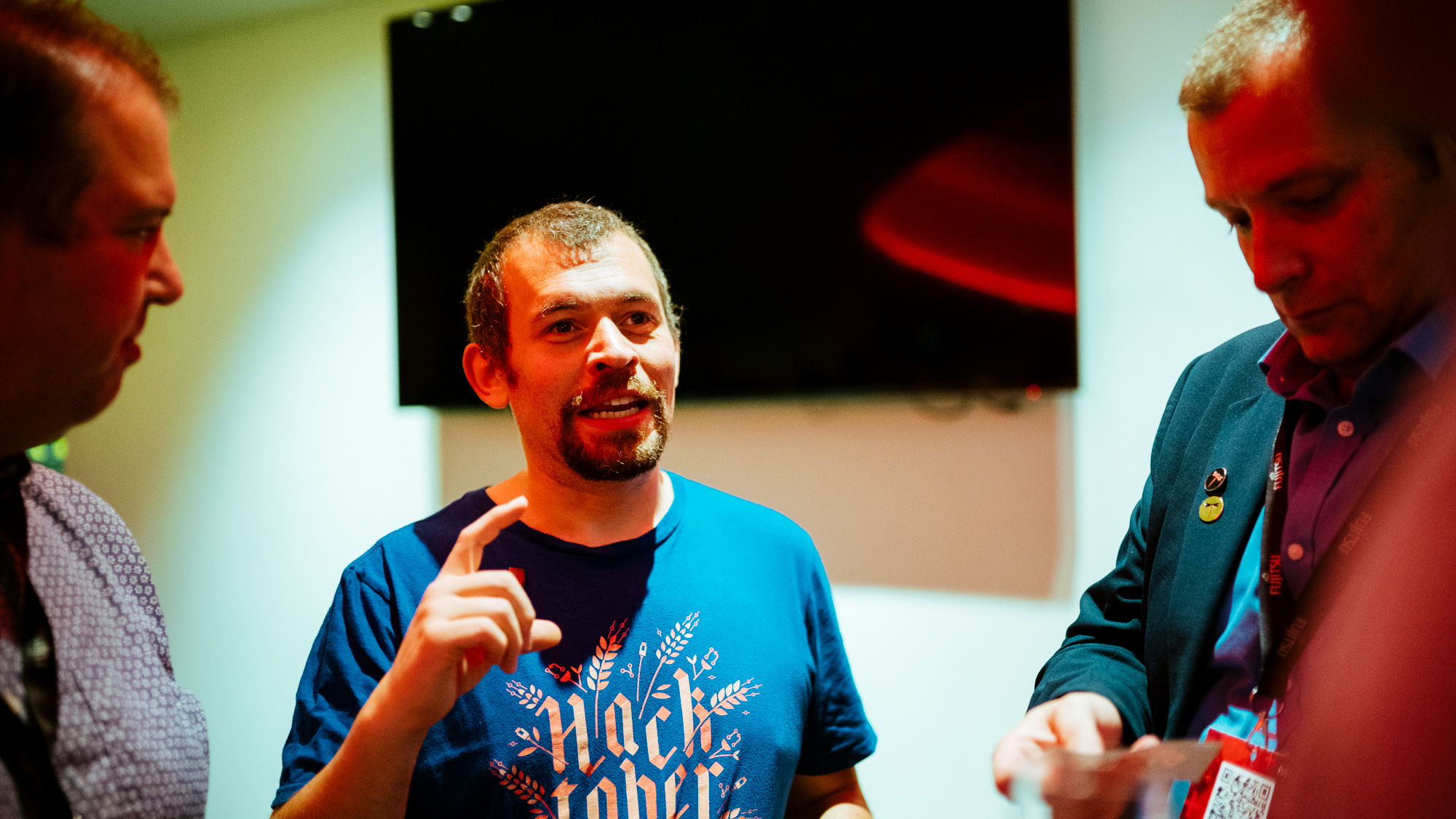 |